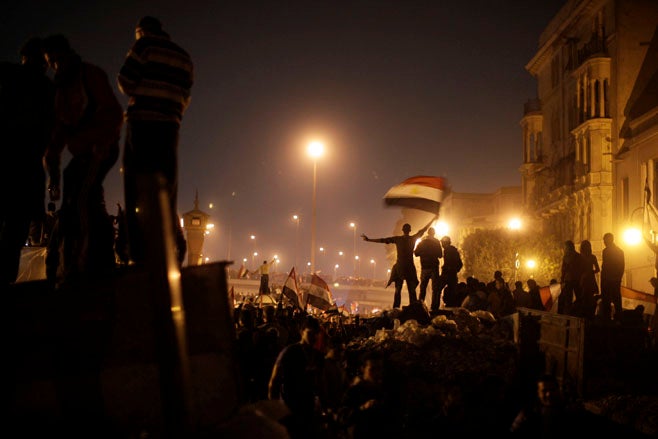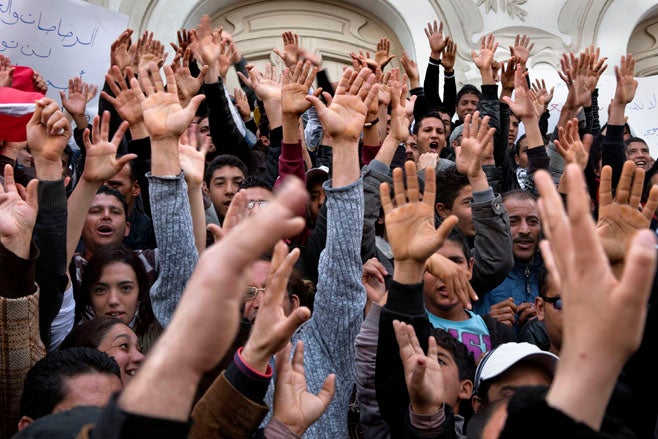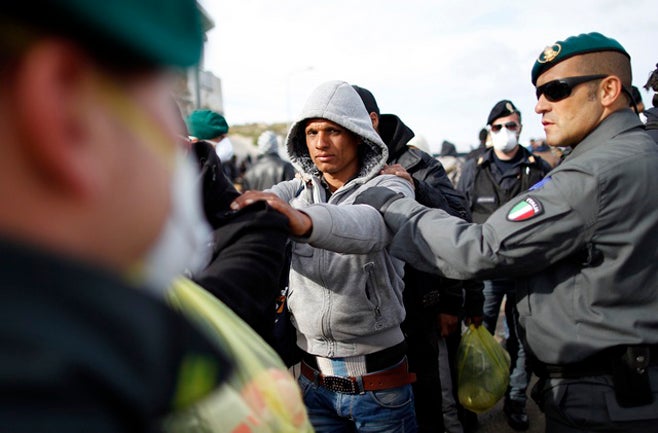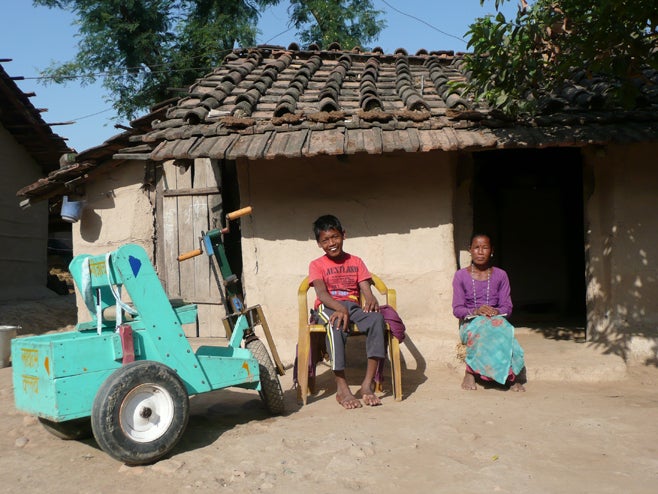Papua New Guinea has abundant natural resources, but poor governance and corruption have prevented ordinary citizens from benefitting from this wealth. The government has failed to safeguard environmental concerns in mining operations, and the continued dumping of mine waste into rivers poses potentially severe health risks.
The government has not taken concrete steps to address pervasive abuses by the police force that are committed with impunity, as documented in a February report by the United Nations special rapporteur on torture. Violence against women is widespread, buttressed by limited social services and a weak justice system.
Dysfunctional government institutions continue to paralyze the country. In August Peter O’Neill, the former treasurer, was elected prime minister after opposition leaders persuaded parliament to declare the prime minister’s office vacant while sitting Prime Minister Michael Somare received medical treatment overseas. In September the National Court referred Somare’s bid to hold his seat in parliament to the Supreme Court. Somare has been the country’s dominant political figure for more than 40 years. Some have expressed cautious optimism that new leadership could herald a more transparent and accountable government.
Extractive Industries
Extractive industries are the main engine of the economy, but the government has long failed to adequately regulate them, with devastating consequences to the environment. Papua New Guinea’s sprawling Porgera gold mine, 95 percent owned by Canadian company Barrick Gold, has produced more than 16 million ounces of gold since opening in 1990, worth more than US$20 billion today. The mine dumps 16,000 tons of liquid waste into the Porgera River every day, a controversial practice that is out of line with current industry standards. Critics worry it could pose serious health risks to communities downstream.
A protracted legal battle over the Ramu Nickel mine, set to begin operations in late 2011, involves Ramu Nico Management (MCC), the Chinese company that owns the majority of the mine, and landowners raising compensation discrepancies and environmental concerns. In July the National Court dismissed an application that landowners had brought for a permanent injunction preventing the mine from dumping waste into the sea. The Supreme Court was hearing an appeal at this writing.
Exploration drilling as part of a projected $15 billion Liquid Natural Gas (LNG) project is set to expand at the end of the year. Disputes between local landowners and LNG contractors have been common since the project was sanctioned in 2009, and unresolved disputes over compensation for landowners, outstanding business development grants, and inadequate benefits for employees continue to generate protests and occasional violence. In August local villagers attacked two employees at the LNG site in Komo, a proposed airfield, forcing Exxon Mobile to temporarily halt operations.
Torture and Other Police Abuse
Human Rights Watch has previously documented widespread abuse by Papua New Guinea’s police, including use of excessive force against demonstrators, torture, and sexual violence, including against children.
In February the UN special rapporteur on torture released a report on Papua New Guinea documenting routine beatings of criminal suspects that often rise to the level of torture, extortion of sex from female detainees, corruption, and other abuses. Conditions in correctional institutions were “poor,” and “appalling” in police lockups, where children are regularly detained with adults. The report outlined measures to address corruption and impunity in the police force, including ratifying the Convention against Torture and amending domestic legislation. At this writing the government had taken no substantive measures to address widespread abuses documented in the report.
Violence against Women
Violence, including sexual violence, against women and girls is rampant in Papua New Guinea. Support services such as shelters and emergency health care are grossly inadequate. Victims face formidable barriers to obtaining redress through the justice system, including lack of information, limited legal aid, and geographic distance. Many village courts rely on customary laws that do not protect women’s rights. The system often leaves perpetrators unpunished, a problem exacerbated by the propensity of some police to engage in sexual violence.
Private security personnel employed at the Porgera gold mine have been implicated in alleged gang rapes and other violent crimes. Following publication in February of Gold’s Costly Dividend, Human Rights Watch’s report on this issue, Barrick Gold and police uncovered additional cases of alleged abuse. Barrick fired six employees for involvement in, or failure to report, alleged sexual violence. Police arrested three current and former Porgera Joint Venture employees in January. Two were charged with rape and the third with inflicting grievous bodily harm. Barrick has committed to improve oversight and accountability mechanisms in order to prevent future abuse. At this writing it was working to establish a compensation mechanism for victims.
Corruption
The government has regularly been embroiled in corruption scandals. In Transparency International’s 2010 Corruption Percentage Index, which evaluates and ranks public sector corruption in countries all over the world, Papua New Guinea ranked 154 out of 178 countries surveyed.
After taking office Prime Minister O’Neill called for establishing an independent commission against corruption and initiated a corruption investigation task force. In August the prime minister announced an investigation of the National Planning and Monitoring Department after revelations that $850 million in development funds had allegedly been inappropriately distributed to companies and individuals. Despite public commitments to tackle the corruption crisis, the new government’s rhetoric must be matched by action to address the government’s systemic culture of graft.
Health and Education
Papua New Guinea performs poorly on most indicators of economic and social well-being. Rates of maternal and child mortality are among the region’s highest. The closure of rural aid posts and health centers, and the shortage of drugs, medical equipment, and trained health professionals all limit access to quality health care.
The country has the highest prevalence of HIV/AIDS among the Pacific islands. According to the most recent health data, around 34,100 people live with the disease (0.92 percent of adults in 2010), with young women most likely to be diagnosed. Gender inequality; sexual violence; inadequate HIV-prevention information, including opposition to condom promotion; and poor access to health care fuels the virus’s spread. People living with HIV/AIDS often face violence and discrimination.
Primary education remains neither free nor compulsory. According to AusAID, the net enrollment in primary education was 63 percent of school-age children in 2009. Barriers include long distances to schools, a shortage of upper secondary placements, high school fees, and school closures due to insecurity. The new government has committed to fully subsidize education up to grade 10 beginning in January 2012, though similar pledges have been made in the past with few results.
Key International Actors
Australia, Papua New Guinea’s former colonial ruler, is the country’s most important international partner, providing some $498 million in annual assistance.
In August Australia and Papua New Guinea agreed to reopen a processing center on Manus Island for asylum seekers who arrive in Australia by boat. However, the issue has been deferred indefinitely after the Australian High Court’s September ruling that overseas detention and processing of asylum seekers was unlawful. Despite Australia’s apparent agreement to process asylum claims on Manus Island, Papua New Guinea remains responsible as a party to the 1951 Refugee Convention for ensuring a fair refugee status determination process and respect for the principle of nonrefoulement (“non-return” to persecution), as well as being responsible for humane treatment of migrants and durable solutions for refugees. The center has yet to officially open.
In 2011 the UN Human Rights Council examined Papua New Guinea’s rights record through the Universal Periodic Review process. Addressing the recommendations of states, Papua New Guinea acknowledged a wide range of human rights concerns, but failed to offer clear steps to combat such issues. For instance, in addressing questions about the special rapporteur’s report on police abuse and torture, Papua New Guinea offered what is now a familiar response: the recommendations, it said, were “under review.”






